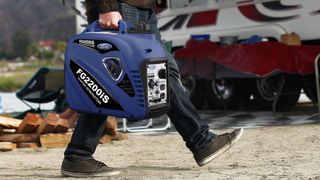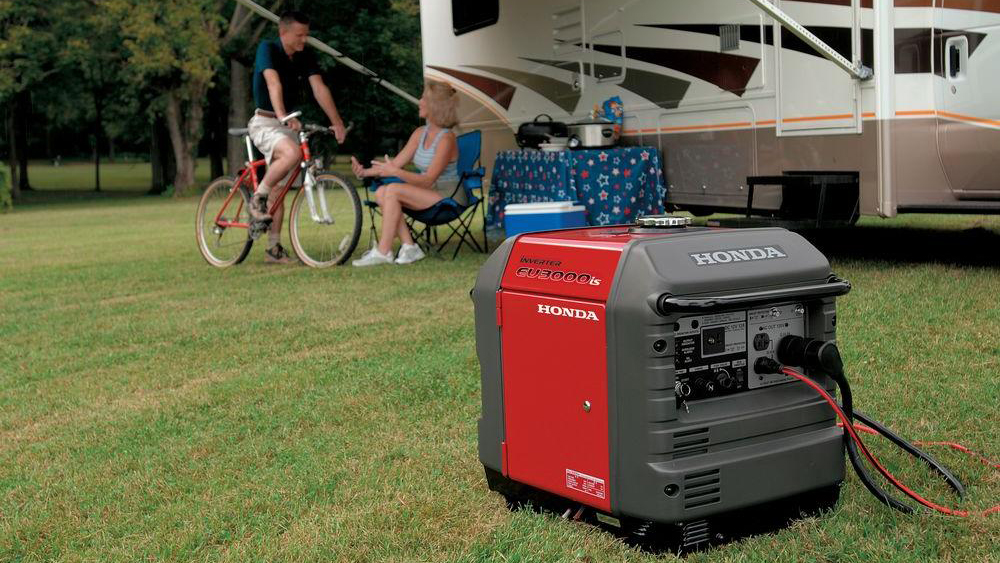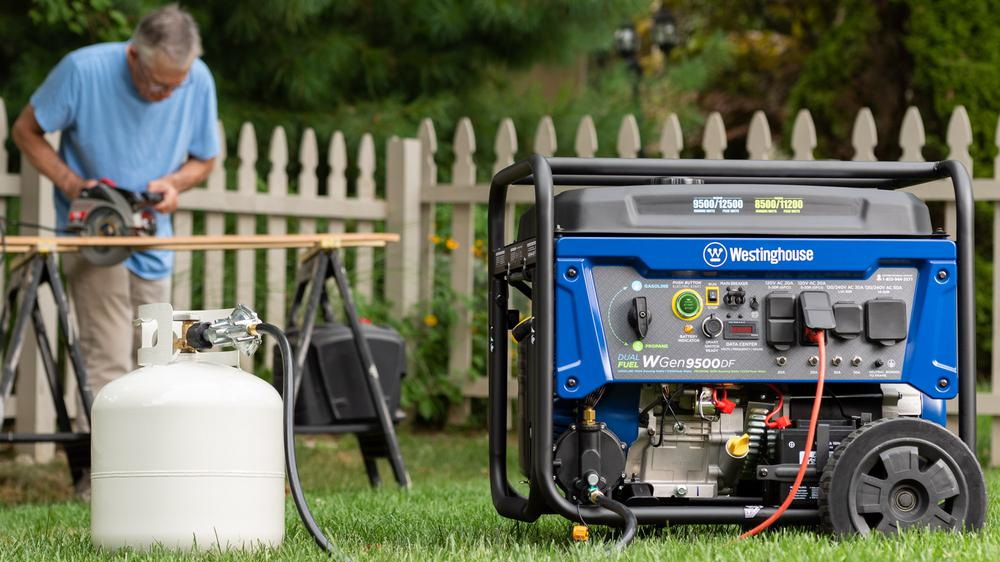How to Install Natural Gas Line to a Generator
Gas generator vs. Propane generator - Which is better?

Portable generators are incredibly useful tools that let you power electrical devices almost anywhere - whether it's in the garden shed or out in the middle of nowhere. Many campers use some of the best portable generators to bring a few home comforts with them into the great outdoors - imagine sitting with your friends watching a movie at a woodland campsite under the night sky. At the same time, contractors and builders use them to power tools at construction sites that haven't been hooked up to the mains power yet.
And of course, portable power generators can be used as part of an emergency supply kit to keep your devices going and the lights on during an emergency - no emergency bunker would be complete without one, or the best emergency food storage companies.
No matter what you're using them for, if you're looking to buy a portable generator then you're going to be met with a choice - gas or propane? Both fuel types have their pros and cons, so let's go through them.
Gas generators
Gas generators are the most common type of portable generator because they're fueled with gasoline, which is extremely common and easily obtainable. You can just pop down to your local gas station and fill up a container with gas and you're good to go. This convenience is the major upside to gas generators, but they come with more than their fair share of downsides too.
For one thing, gasoline is expensive. Not only that, but during an emergency the price of gasoline is likely to skyrocket even further if there are shortages. This means that gas generators aren't the most economical solution. You should also consider that gas stations require electricity to function, so chances are good that if you don't have power, they don't have power, so you won't be able to get more gas if there is widespread power loss.

You could stockpile gasoline while it's relatively cheap now, but that comes with its own problems as it's highly toxic, flammable, and has a relatively short shelf life.
Speaking of toxicity, we really want to double down on this: gasoline is super bad for you and the environment. It gives off toxic fumes that you absolutely don't want to be breathing, it's easy to spill and highly combustible. Accidents involving gasoline aren't pretty and all it takes is an errant spark to set the whole shebang up in flames.
So generally we'd recommend against using a gas generator as an emergency power source. They're better suited to being used on building sites or in large gardens and yards where connecting to the mains isn't an option.
Propane Generators
Propane has traditionally been the king of the grill, fueling most of the best gas grills and providing everyone with well-cooked steaks and burgers, but it's becoming increasingly popular as a generator fuel too. And it's easy to see why. There's a lot to like about propane generators when compared to their gas-guzzling cousins.
It comes in cylinders that make it virtually impossible to spill... and if it is spilled, propane immediately evaporates so you don't need to worry about cleanup. It's clean burning too, at least when compared with gasoline. On top of this, propane generators are typically much quieter than gas generators, which make quite a racket.

For an emergency preparedness kit, propane is valuable because you can still acquire it when there's a major power outage. You don't need electricity to fill a tank of propane, and it also has a long shelf life. You can only store gas for about 12 months, but you can store propane indefinitely - it will literally outlast the container holding it. So the only long-term concern is maintaining the tank. This allows you to stock up on it without worrying that it's going to degrade and be useless when you need it.
It's not all sunshine and roses though, propane does have its downsides. Propane generators are significantly more complicated than gas generators, which means it's much harder to repair one when they do break down. Propane also doesn't function well in extreme cold conditions, so if it gets below 20° Fahrenheit where you live, you should probably consider a gas, or dual fuel generator.
Why not both?
The best portable generators allow you to use both fuels, giving you the accessibility of gasoline for everyday uses with the availability of propane during a crisis. Generally we lean on the side of propane generators for most situations, but if you're living somewhere cold or can't get easy access to propane, then a gas generator might be your best bet.

Jeph is a freelance writer who specializes in automotive and tech. With a Masters degree in Fiction from San Diego State University, he has written extensively for Top Ten Reviews on subjects ranging from car speakers and Bluetooth devices, all the way through to online file storage and backup software.
How to Install Natural Gas Line to a Generator
Source: https://www.toptenreviews.com/portable-power-gas-generator-vs-propane-generator